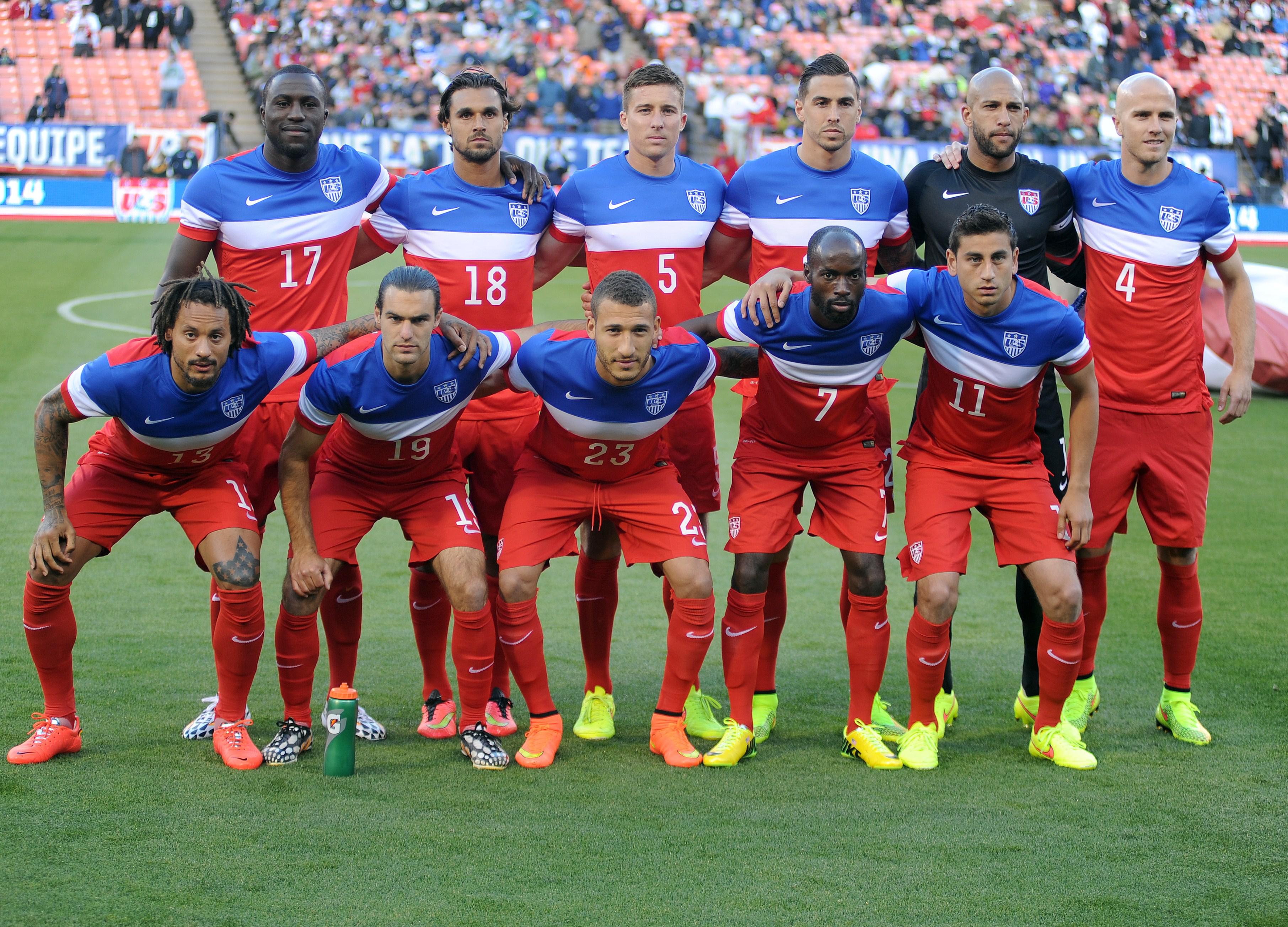There are many reasons the United States men’s soccer team isn’t a first-tier World Cup competitor. They include soccer’s historically marginal place in the American sports hierarchy, our development system’s inferiority to the vigorous training programs of other countries, and our failure to develop a consistent national soccer philosophy and playing style. It will take years of careful planning and hard work at all levels of the domestic game to address these various issues. But there is one thing that even casual United States fans can do right now to boost the U.S. men’s national team’s global standing, domestic popularity, and sense of identity and self-esteem: give the team a better nickname.
As it stands, the USMNT barely has a nickname at all. We’re sometimes called the Yanks or the Stars and Stripes. But those are little more than placeholders, synonyms that help reporters and play-by-play announcers avoid repeating “the United States” in consecutive sentences. The Yanks is borderline pejorative, even, given the strutting connotation of “Yankee” and our country’s current international reputation.
Meanwhile, our competitors in the World Cup include Les Lions Indomptables, El Tri, Gli Azzurri, the Black Stars, La Furia Roja, and the Super Eagles. Every American should be humiliated to know there is a team with a great eagle-based nickname, and it’s not us.
Those names are mythical, sonorous, and intimidating. (Even “The Blues”—Gli Azzurri, referring to the Italian team’s jersey color—sounds vivid and dangerous in Italian.) They have historic weight and inspirational power. Among the teams I mentioned are the champions of the past two World Cups (Italy and Spain), the team that has knocked us out of both of those tournaments (Ghana), and one of the international game’s most spirited underdogs (Cameroon). A powerful nickname seems to be a prerequisite for international soccer relevance. Even the simplest ones—Die Mannschaft (The Team) for Germany, Seleção (The Selection) for Brazil—convey a seriousness and elite standing that the Yanks and the Stars and Stripes can’t match.
What, then, should our nickname be? I put that question to the teeming masses on Twitter and to a few prominent USMNT enthusiasts. Grantland’s Noah Davis rejected my premise altogether, writing that a new nickname would “feel forced, like adopting a random English Premier League team” and that what we really need are better chants. His colleague Brian Phillips proposed that we pick a single color—even pink would work, he suggested. “There are more teams called ‘The Blues’ than there are nations on earth, yet they’ve all won the World Cup,” he wrote. (If you include sky blue or celeste, Italy, France, Argentina, and Uruguay all fall into this category.) “The Indomitable Lions is a wicked, wicked nickname, but when was the last time Cameroon won the World Cup? Single color, no fuss—that’s how you make it in world soccer.”
Brian Cook suggested Project 3010, a facetious reference to the U.S. soccer association’s 1998 announcement that we’d be a World Cup contender by 2010. (We were not.) On Twitter, a wiseass proposed Mission Accomplished, which does point to a crucial requirement for any American nickname: It shouldn’t remind the rest of the world of our reputation for imperialist militancy and arrogance. (The Manifestly Destined and It’s Soccer, though both appealing, were rejected for this reason.)
There is, in my opinion, one obvious and perfect choice for a United States soccer nickname: the American Dream. It works on every level. There’s no disputing that it’s catchy and memorable. It reminds our international peers of the good things about the United States without bringing up the bad, Vietnam-y stuff. It appeals to domestic fans by situating the USMNT in the ambitious underdog role that Americans love, and it references a history of immigration and melting-pot inclusiveness that is reflected by our national team’s roster. It has just the right combination of pluckiness—to inspire an upstart identity in our current squad—and grandeur—to seem fitting when we do ascend to first-tier status. The only downside is almost an upside: namely, as Brian Phillips pointed out when I suggested it to him, the potential for geopolitically wry headlines like “Aging, Infirm American Dream No Longer Competitive Internationally” after lost matches. (If you must lose 3–0 to Portugal, at least lose with a self-deprecating sense of humor.)
I get that you can’t usually declare a nickname and that I am just a humble blogger, one without a great deal of soccer expertise at that. But the American Dream is too perfect, and too necessary for me to stand on the sidelines. I can’t help picturing the day, perhaps not too far off, when a United States striker knocks a ball past some South American or European goalie—let’s say it was a comeback victory to send the team into its first-ever World Cup final—and our country celebrates. “THE AMERICAN DREAM,” the announcer will yell, hoarse and nearly hysterical, but still dignified, in that soccer-announcer way. “IS … STILL … ALIVE!” Wouldn’t it be nice?
